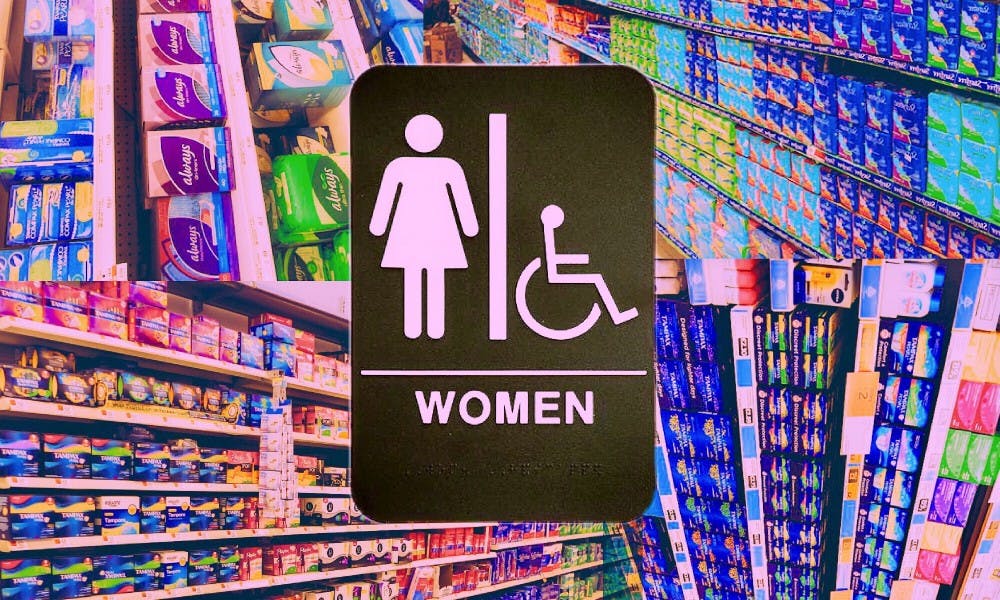
It’s time for Penn to follow other universities in offering free pads and tampons to students across campus. The Undergraduate Assembly recently announced it is working to increase accessibility to menstrual products, an initiative that will entail placing tampons in gender-neutral spaces and reducing “stigmas that prevent menstrual products from being viewed as a necessity.” The UA's initiative is a step in the right direction. Still, Penn must take action too.
Periods can be expensive. Tampons, which on average cost $5.99 a pack in the United States, are costly in and of themselves. This excludes the price of painkillers like Midol, heating pads, and panty liners — all products that many women make use of. This is a heavy cost to shoulder for low-income college students who often worry about paying their rent and their student loans.
Last February, Sasha Mennino and Iris Peron-Ames — two local eighth graders — worked to bring tampons to Penn for first-generation students who can’t afford them. They held a tampon drive, and named their project “Kalina’s Cabinet” in honor of their friend Kalina Kozlowski who took her own life.

When discussing the inspiration for their project, Mennino and Peron-Ames cited an experience that Peron-Ames’ mother Melanie Peron, a French professor at Penn, had with one of her female students. The student told Peron “that money is so tight she must sometimes choose between eating breakfast or buying tampons.”
Many of our Ivy league peers have made strides in increasing accessibility to menstrual products on campus. Every Harvard University dorm now provides free menstrual products. Brown University offers free tampons and pads in every campus bathroom. In 2017, Cornell University began dispensing free tampons in some campus bathrooms. Why is Penn lagging behind other schools to combat such an important issue?
Menstrual products are a necessity. While it is encouraging that the UA recognizes this, Penn's administration has a responsibility to do so as well.
Menstrual products are just as necessary as toilet paper and paper towels. They should be made available in bathrooms across campus. The administration should make concrete steps to increase accessibility to menstrual products on campus because students should never have to choose between eating breakfast and managing their periods.
Editorials represent the majority view of members of The Daily Pennsylvanian, Inc. Editorial Board, which meets regularly to discuss issues relevant to Penn's campus. Participants in these meetings are not involved in the reporting of articles on related topics.
The Daily Pennsylvanian is an independent, student-run newspaper. Please consider making a donation to support the coverage that shapes the University. Your generosity ensures a future of strong journalism at Penn.
Donate



